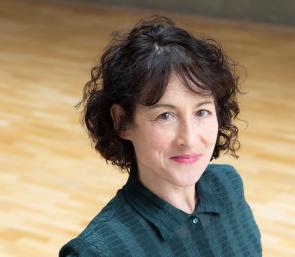
Improvisation / interpretation / composition
INFORMATIONS
-
Objectives and content
Establishing relationships, making choices, being autonomous and asserting oneself as the subject of one's dance are the priorities of this workshop.
Proposals are gradually built up over the 4 years to elicit increasingly complex states of body, presence and dance.
In the contemporary preparatory year, the emphasis is on the relationship with the group and an exploration of concepts specific to movement, based in particular on the approach of the choreographer and teacher Alwin Nikolais. Themes covered include globality/isolation, working with animals, minerals and plants, near and far spaces, volumes and lines, notions of material spaces and imaginary spaces, the qualities and motors of movement, actions, and the relationship with time, in terms of duration, speed, repetition, continuity and discontinuity. Two or three sessions of improvisation around a theme take place before the students embark on composition work, which is prepared outside class and shared with the group the following week.
In DNSP1 contemporary, the aim is to refine the intention and accuracy of movement by 'playing' with the object or partner, in order to stimulate the body's imagination through other sensory inputs. The work is based around three areas of research: the relationship with the object, which allows us to induce different presences, states and imaginary bodies; the relationship with and recognition of the other and the group, so that we can experience 'being with', in different situations of proximity, distance, convergence, opposition and complementarity, paying particular attention to the gaze in the relationship with the partner; and finally, space as a place, allowing us to improvise and compose in spaces other than the studio.
In the classical DNSP1, the themes covered in the contemporary preparatory year are taken up again and adapted to the specific needs of classical dance students.
In DNSP2, the workshop focuses on 4 areas of research: states of body, so that the vocabulary diversifies and interpretation asserts itself; notions of themes and development in improvisation and composition; encounters and shared practice around students' personal projects as part of the partnership with the Ecole des Beaux-arts de Paris; and support for students in developing their personal composition at the end of the year.
In DNSP3, the challenge is to assert oneself artistically, to go through singular writing processes, and to put them in resonance with other artistic approaches.
The act of interpretation in improvisation is addressed, enabling students to refine their states of presence and their ability to perceive the past, present and future in the improvised act. Being looked at, refining this 'in-between' where the performer learns to nuance their states of presence to themselves and to the outside world, the gaze being approached in this context as an inescapable dimension of the performing act. The notions of themes and variations in choreographic composition are explored in depth, and the ability to identify, transform and vary them is developed.
The relationship with words comes into play, with the text becoming a support for the danced movement, without the latter becoming figurative or narrative.
Particular emphasis is placed on the relationship with music, by approaching the composition of a solo in relation to a chosen piece of music. The aim is to raise the dancers' awareness of the possible relationships between dance and music, giving them a range of compositional tools with which to create choreography in dialogue with sound. In this context, a meeting with Vincent Le Quang's generative improvisation class is organised every year.
The relationship with costume and clothing is also introduced, in partnership with another teacher, and the partnership with the École des Beaux-arts de Paris continues, always with the aim of encouraging encounters and cross-practices based on the personal projects of dance and visual arts students.
Finally, as part of the process of obtaining the performance certificate, students are given personalised support in developing a personal composition at the end of the year.
-
Erasmus
No

